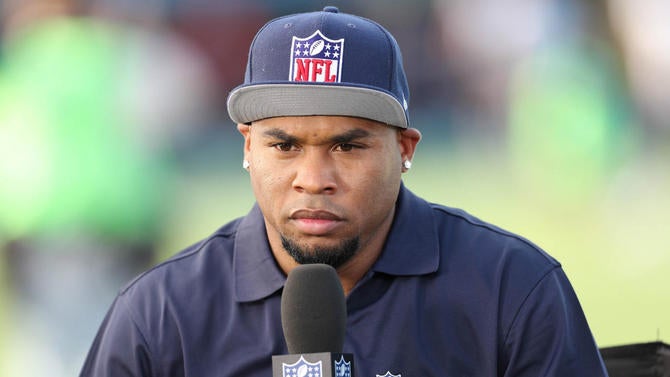
Steve Smith is a likely future Hall of Famer, one of the best wide receivers of his -- or any -- era. His 1,031 receptions rank 12th all-time, while his 14,731 receiving yards rank eighth. But more than his performance, Smith is perhaps even better known for his toughness. Standing only 5-foot-9, Smith always had to be scrappier and tougher than opposing defenders in order to have success on the field, but he was also legendary for his tackle-breaking, his blocking, and of course, his trash-talking.
But being tough on the field doesn't mean you don't deal with bouts of insecurity. Even the toughest people in the world can have trouble in their lives. And Smith revealed on Tuesday that he is one of those people. In an essay on NFL.com, Smith revealed that he has struggled for years with depression, only really getting proper help after he retired in 2016, even though he began counseling a few years earlier.
Don't get me wrong: I love football. Always have. I took immense pride in being a tough, in-your-face wide receiver, and am content with what I did in my career. I hung it up after 16 years of antagonizing defensive backs, putting up 14,731 receiving yards and 81 receiving touchdowns on 'em, while making five Pro Bowls and earning two first-team All-Pro nods. Pretty good, right?
Well, what if I told you I never truly enjoyed those moments, never felt genuine delight in my accomplishments?
One common question I contemplated through the highs and lows was simple, but felt so complex:
What's wrong with me?
Despite all of my achievements, I routinely felt trapped, inferior and alone. This overwhelmed me internally and often left me mentally, physically and emotionally broken.
Smith relayed his struggles of even starting counseling in the first place, noting that he had the counselor come to his home rather than taking an appointment in an offense setting, because he was scared of what people would think if he was spotted walking into a counseling office.
Smith's feelings are not uncommon, as a significant portion of people in the world struggle with some form of depression and anxiety. But Smith says the most important thing he learned is that, well, even if you're feeling those things, that doesn't mean anything is wrong with you.
In a more open and enlightened state these days, I come back to that question that haunted me for so many years:
What's wrong with me?
And now I have an answer: There's nothing wrong with me, nor is there with anyone else who suffers from depression and other mental health disorders. All human beings have strengths and weaknesses, physical and mental. You're defined by how you play the hand you're dealt in life. I've spent the last year grieving, in a sense, the fact that I no longer am a football player -- the one thing I have been my entire life. Re-identifying myself has been quite the process and learning to be OK with that even more so.
My advice to anyone suffering from mental health issues -- and specifically athletes who can relate -- is this: Ask for help. Stop trying to deal with these serious matters alone. You're not alone. Believe me.
The lesson Smith imparts here is a good one. Therapy is not for everybody (and often comes at a financial cost) but struggling with these types of feelings alone is often an even worse option. Seeking help can be tough but the potential benefits can often be well worth it.
![[object Object] Logo](https://sportshub.cbsistatic.com/i/2020/04/22/e9ceb731-8b3f-4c60-98fe-090ab66a2997/screen-shot-2020-04-22-at-11-04-56-am.png)



















